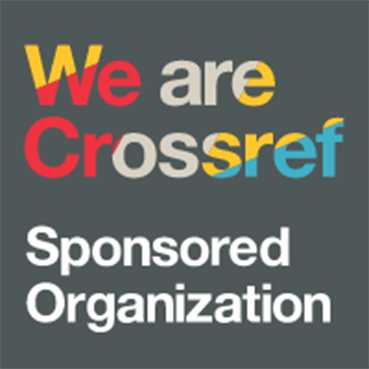Transformasi Profesionalisme Guru PAI di Era Digital: Strategi Adaptif Menghadapi Tantangan Pendidikan Abad 21
Main Article Content
Diana Diana
Muhammad Hasbi Abdul Rahman
The transformation of Islamic Religious Education (PAI) teachers’ professionalism in the digital era is an urgent strategic issue within the context of 21st-century education. This study aims to conceptually analyze the forms of professionalism transformation among PAI teachers, the challenges they encounter, and the adaptive strategies that can be implemented to address the dynamics of modern education. The method employed is library research by reviewing relevant journals, books, and policy documents. The analysis was conducted thematically across three main dimensions: strengthening professional competence, digital literacy, and the integration of Islamic values. The findings indicate that the transformation of PAI teachers must incorporate 21st-century competencies, particularly the 4Cs (critical thinking, collaboration, communication, and creativity), into pedagogical practices. Challenges such as technological gaps, limited training opportunities, and social complexities require contextual, collaborative, and value-based strategies rooted in Islamic principles. The contribution of this study lies in emphasizing a conceptual model for developing PAI teacher professionalism that is not only responsive to digital demands but also firmly grounded in spirituality, tawhid, justice, and trustworthiness. These findings are expected to serve as a reference for policymakers, educational institutions, and teacher communities in designing adaptive and sustainable professional development programs.
Al-Attas, S. M. N. (1980). The Concept of Education in Islam (pp. 19-33). Kuala Lumpur: Muslim Youth Movement of Malaysia.
Auliya, H. (2025). Studi Komparatif Kesiapan Guru Berpedagogi Tradisional dan Modern dalam Menghadapi Pendidikan Islam di Era Digital. Paramurobi: Jurnal Pendidikan Agama Islam 8(1), 1-11. https://ojs.unsiq.ac.id/index.php/paramurobi/article/view/8528.
Besare, S. D., Sasingan, M., & Manutede, Y. Z. (2024). Pengaruh Kompetensi Pedagogik Guru terhadap Efektifitas Belajar Siswa. Jurnal Studi Guru Dan Pembelajaran, 7(3), 1013–1022. https://doi.org/10.30605/jsgp.7.3.2024.4222.
Dahirin, D., Rusmin, R. (2024). Integrasi Nilai-Nilai Keislaman pada Peserta Didik Melalui Pembelajaran Pendidikan Agama Islam. Dirasah: Jurnal Studi Ilmu Dan Manajemen Pendidikan Islam, 7(2), 762–771. https://doi.org/10.58401/dirasah.v7i2.1325.
Darling-Hammond, L. (2017). Teacher Education Around the World: What Can We Learn from International Practice? European Journal of Teacher Education, 40(3), 291–309. https://doi.org/10.1080/02619768.2017.1315399
Eraku, S. S., Baruadi, M. K., Anantadjaya, S. P., Fadjarajani, S., Supriatna, U., & Arifin, A. (2021). Digital Literacy and Educators of Islamic Education. Edukasi Islami: Jurnal Pendidikan Islam, 10(01), 569-576. https://doi.org/10.30868/ei.v10i01.1533.
George, A. L., & Bennett, A. (2005). Case Studies and Theory Development in the Social Sciences. Cambridge, MA: MIT Press.
Indrawan, I. (2019). Profesionalisme Guru di Era Revolusi Industri 4.0. Al-Afkar: Manajemen Pendidikan Islam, 7(2), 57-80. https://doi.org/10.32520/afkar.v7i2.255.
Khadafie, M. (2025). Pendidikan Agama Islam: Tinjauan Teori dan Praktik. Penerbit Adab.
Loughran, J. (2012). What Expert Teachers Do: Enhancing Professional Knowledge for Classroom Practice. Routledge.
Masitoh, S. D., & Purbowati, D. (2024). Enhancing Teacher Professionalism in Indonesia: Challenges and Strategies for Digital Technology Utilization in the Society 5.0 Era. HEUTAGOGIA: Journal of Islamic Education, 4(2), 219–236. https://doi.org/10.14421/hjie.2024.42-06.
Moleong, L. J. (2017). Metodologi Penelitian Kualitatif (Edisi revisi). Bandung: PT. Remaja Rosdakarya.
Nafi’uddin, M. (2022). Arah Baru Reformasi Pendidikan dan Implementasi dalam Proses Keberlangsungan Pendidikan Nasional di Indonesia. Journal of Education and Religious Studies, 2(03), 95-101. https://doi.org/10.57060/jers.v2i03.77.
Shobri, M. (2021). Strategi dan Dampak Internalisasi Nilai-Nilai Pendidikan Islam dalam Pembentukan Karakter Islami Siswa. CENDEKIA: Jurnal Studi Keislaman, 7(2), 285–297. https://ejurnal.inhafi.ac.id/index.php/cendekia/article/view/180.
Souad, M., & Ramdane, T. (2022). Lifelong Learning among Islamic Studies Teachers: A Path for Professionalism. In Supporting Modern Teaching in Islamic Schools (pp. 157-167). Routledge.
Srinivasacharlu, A. (2019). Continuing Professional Development (CPD) of Teacher Educators in 21st Century. Shanlax International Journal of Education, 7(4), 29-33. https://eric.ed.gov/?id=EJ1245169.
Suryadi, A. (2022). Menjadi Guru Profesional dan Beretika. CV. Jejak (Jejak Publisher).
Syafriafdi, N. (2020). Menjadi Guru Hebat di Era Revolusi Industri 4.0. Deepublish.
Tambak, S., Hamzah, H., Sukenti, D., & Sabdin, M. (2021). Internalization of Islamic Values in Developing Students' Actual Morals. JPI (Jurnal Pendidikan Indonesia), 10(4), 697-709. https://doi.org/10.23887/jpi-undiksha.v10i4.30328.
Undang-Undang Republik Indonesia Nomor 14 Tahun 2005 tentang Guru dan Dosen.
Zed, M. (2004). Metode Penelitian Kepustakaan. Jakarta: Yayasan Obor Indonesia.
Zubairi, Z. (2023). Profesionalisme Guru Pendidikan Agama Islam Era Revolusi 4.0. Penerbit Adab.








